Welcome to the wild ride of American slang—a language playground where words are flipped, meanings are shifted, and even the simplest term can leave foreigners utterly baffled. Picture scrolling through your feed and coming across phrases that sound like secret codes from an exclusive club. In this article, we’re diving into 16 slang words that encapsulate the quirky, spontaneous vibe of American lingo. Whether you’re trying to decode a text or simply want to join the convo, these expressions will help you speak like a local (or at least pretend you do). So grab your iced latte, settle in, and get ready to explore some seriously head-scratching slang.
1. Hangry

Ever been so starving you nearly yeeted your phone at someone? That’s “hangry”—a slick combo of “hungry” and “angry” that nails that grumpy, food-deprived chaos. It’s your go-to when you’re snarling at your crew because the tacos are late. Foreigners, though, are totally stumped. Why mash two feelings into one word? According to Eater, the internet turned it into a cultural juggernaut. Picture this: your stomach’s rumbling, your mood’s tanking, and you snap, “I’m so hangry, I could eat my own arm.” It’s dramatic, it’s relatable, and it’s pure American flair. The vibe’s so specific—hunger plus rage—that it’s almost poetic.
So why’s it a head-scratcher overseas? Tons of languages keep “hungry” and “angry” in separate lanes—no word-blending allowed. Plus, “hangry” sounds like a toddler’s tantrum word, which trips up anyone expecting proper English. It’s millennial shorthand at its finest: quick, cheeky, and a tad extra. Try explaining it to someone who thinks “hanger” is just for clothes—they’ll blink at you like you’ve lost it. It’s cemented in our slang now, but for outsiders, it’s a quirky puzzle that screams “America, why?”
2. Lit

When something’s “lit,” it’s off-the-charts awesome—think a party with epic beats and zero lulls. It’s your hype word for anything that slaps, from playlists to puppy pics. But foreigners hear “lit” and imagine a bonfire, not a banger night out. Dictionary.com says it blew up in the 2000s, with social media cranking it to 11. You can toss it anywhere: “This track is lit,” or “My new kicks are lit.” It’s flexible, it’s bold, and it’s a mood-lifter. The energy’s so infectious, you’ll catch yourself saying it nonstop.
The confusion hits hard because “lit” used to mean “on fire” or “wasted,” not “amazing.” Tell a newbie, “This place is lit!” and they might grab a fire extinguisher. It’s a loud, proud American twist that needs meme fluency to click. Without that cultural Wi-Fi, it’s a total disconnect—especially for folks not scrolling Insta 24/7. The word’s journey from literal flames to figurative fire is slang evolution at its best. It’s our way of shouting “This rocks!” without breaking a sweat.
3. Ghosting

“Ghosting” is when someone vanishes from your life—usually a romantic flop—without so much as a “see ya” text. One day they’re there, the next? Poof, like a bad magician. It’s brutal, it’s peak 21st-century, and it’s all over dating apps. Psychology Today pegs its rise to 2015, blaming Tinder culture. Say it like, “She ghosted me after two dates,” or “I’m ghosting that clingy group chat.” It’s a noun, a verb, and a savage lifestyle. We’ve made ditching people an art form.
Foreigners furrow their brows—ghosts don’t text, right? The spooky vibe throws them, and some cultures expect straight talk, not silent exits. It’s a cute metaphor if you’re in on it, but a mystery if you’re not. Our digital dating scene birthed this gem, and it’s pure chaos to explain. Imagine telling someone “He’s ghosting” when they’re picturing Casper—it’s a flop. It’s American avoidance wrapped in a playful bow, leaving the world wondering where the manners went.
4. Salty

“Salty” is that petty, bitter sting—like when you’re sulking because your bestie beat you at Mario Kart. It’s subtle shade with a smirk, perfect for grudge vibes. Foreigners hear it and think pretzels, not pouts, which is hilarious. Urban Dictionary ties it to the 2000s, maybe from “salted” as in riled up. Toss it out like, “He’s salty about losing,” or “Don’t get salty over my joke.” It’s snarky, it’s Twitter-ready, and it’s got that sass factor. The flavor of irritation it captures is chef’s-kiss perfect.
So why the blank stares? “Salty” doesn’t hint at emotions in most languages—it’s just a taste. Say “She’s salty,” and they might wonder if she’s sweaty—awkward. It’s an American word-flip, turning a snack into a sentiment. Without the context, it’s a seasoning gone wild, and non-slang fans are lost. We’ve taken a physical descriptor and spun it into emotional gold, but good luck selling that overseas. It’s our spice of choice for low-key drama.
5. Sketchy
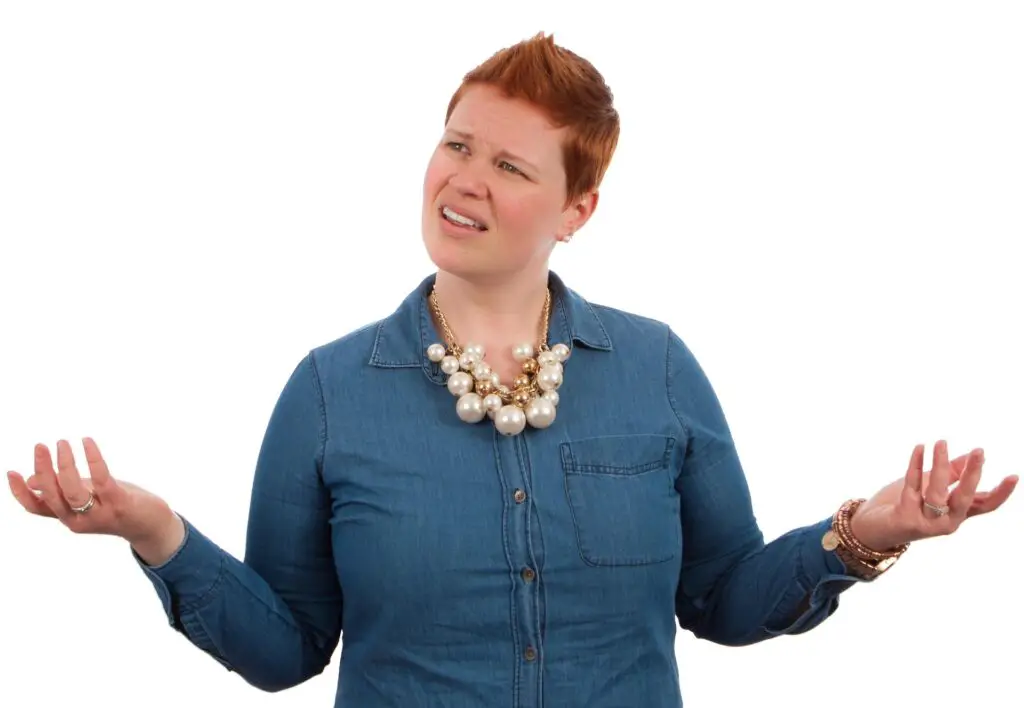
“Sketchy” flags anything dodgy or off—like a sketchy alley or a guy with shifty eyes. It’s that “trust your gut” alert in word form. Foreigners miss it because it once meant “rough sketch,” not “sus.” The Oxford English Dictionary tracks its shady shift to the ‘70s, and now it’s a chill staple. Use it like, “This bar feels sketchy,” or “That deal’s super sketchy.” It’s vague, it’s versatile, and it’s all about vibes. Your spidey senses practically invented it.
The mix-up’s real—the leap from “incomplete” to “sketchy AF” isn’t universal. It’s so laid-back that formal learners recoil, expecting structure. Try “He’s sketchy” on someone who thinks it’s about drawing—it’s a cringe fest. We’ve morphed a neutral term into a warning sign, and it’s a linguistic glow-up. Without that American intuition, it’s just a weird adjective floating out there. It’s our casual way of saying “watch out,” and it’s a total curveball.
6. Boujee
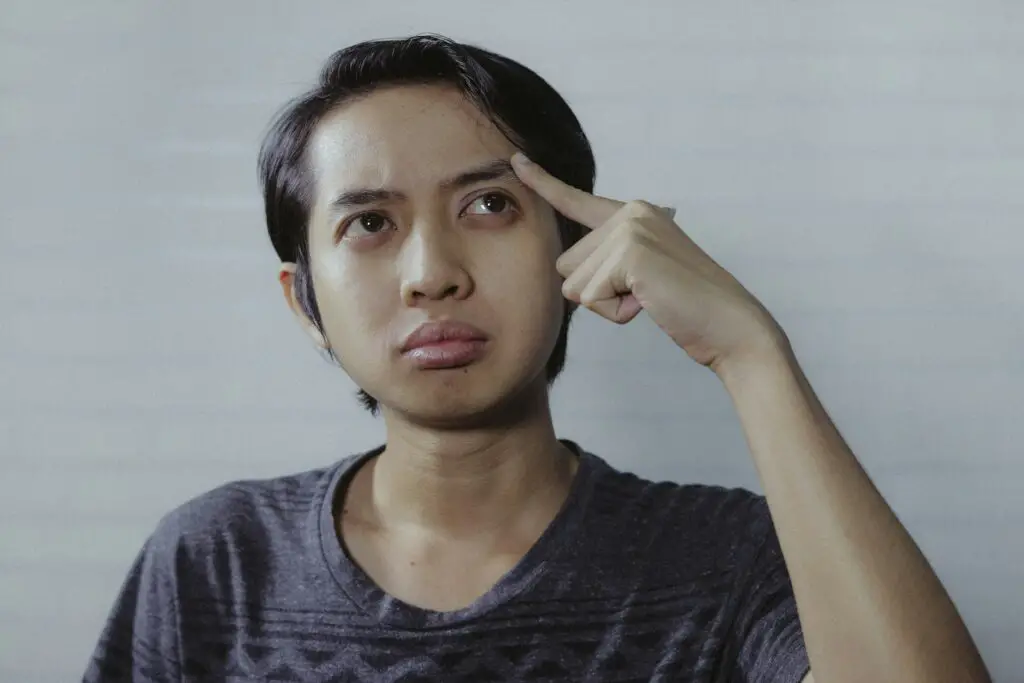
“Boujee” screams fancy-pants vibes—think Gucci bags and avocado toast brunches. It’s “bourgeois” with a sassy haircut, perfect for flexing or shading. Say, “She’s so boujee with her lattes,” or “I’m feeling boujee today.” Foreigners blink—French word, American makeover, Migos’ “Bad and Boujee” vibes from 2016. It’s ironic, it’s trendy, and it’s extra as heck. We’ve turned luxury into a playful jab, and it’s a mood. The duality—mocking and craving wealth—is pure us.
Why the lost looks? The French-to-slang pipeline’s a maze, and the sarcasm’s a bonus hurdle. Is it praise or a dig? Yes, and they hate that. Without the song or IG flexes, it’s noise. It’s our materialism remix, and foreigners are like, “Why are you like this?” The term’s a cultural tightrope—aspirational yet cheeky—that’s tough to translate. It’s American excess with a wink.
7. Extra

“Extra” is when someone’s doing way too much—like bedazzling their dog for a Zoom call. It’s over-the-top, it’s loud, and it’s usually a riot. Drop it like, “He’s extra with his TikToks,” or “That glitter hat is extra.” Foreigners hear “more,” not “drama queen,” because it’s a 2010s social media baby. It’s shade or hype, depending on your tone, and it’s reality TV gold. We love excess, and this word’s our trophy for it. The flair’s unmistakable.
The disconnect? “Extra” as “overkill” needs influencer context—think Kardashians, not math. Without it, “You’re extra” sounds like a quantity quiz. It’s sarcastic, it’s chaotic, and it’s ours. Foreigners miss the drama memo, and we’re cackling at their confusion. We’ve turned “more” into a personality, and it’s a wild ride. It’s peak American energy—unapologetic and loud.
8. Stan

A “stan” is your ride-or-die fan—like, they’d tattoo Harry Styles’ face on their soul. It’s from Eminem’s 2000 song “Stan,” a dark fan tale, but now it’s a brag. Say, “I stan Zendaya,” or “She’s a total stan.” Foreigners go, “Stan who?” It’s niche, it’s internet-born, and it’s fandom crack. The shift from creepy to cool is our doing, and it’s everywhere online. You’re not just a fan—you’re a stan, and it’s intense.
Why the huh? It’s a name with baggage, tied to a rap saga they might not know. Noun or verb, it’s slang overload. Without stan Twitter, it’s gibberish. We’ve made obsession a flex, and they’re lost without the cultural key. It’s a love letter to icons, American-style—big and bold. The fandom vibes are strong, but the backstory’s a barrier.
9. Yeet
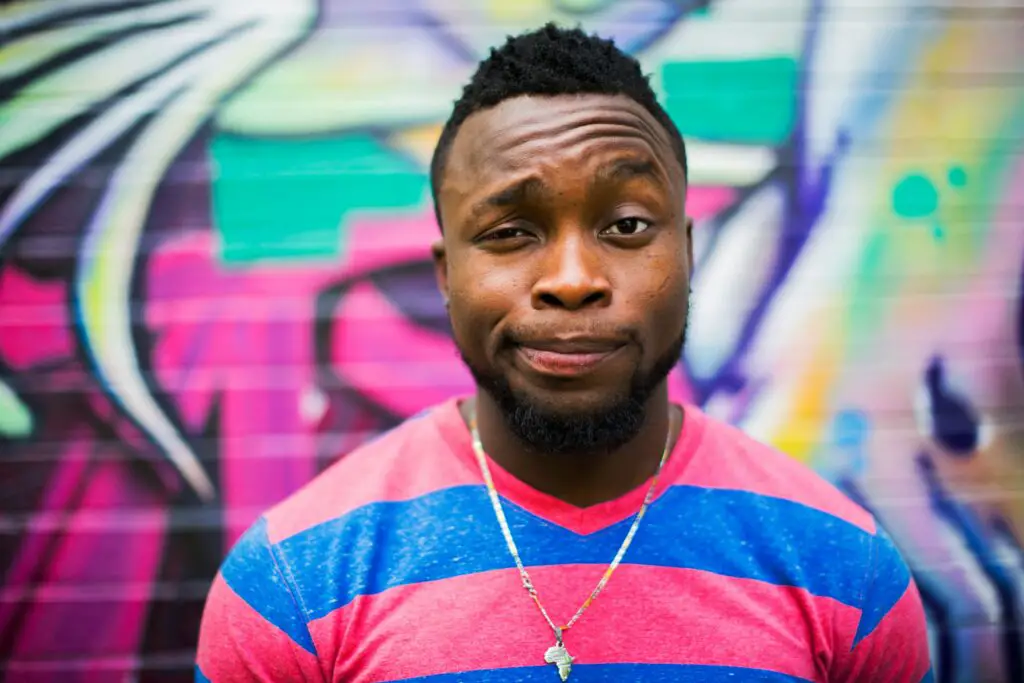
“Yeet” is pure anarchy—chuck something, yell it, or just feel it. It’s “carpe diem” with a Red Bull chaser, born on Vine in 2014. “Yeet that cup!” or “I’m yeeting outta here” works. Foreigners stare—it’s nonsense with no roots, just vibes. It’s action, it’s hype, it’s whatever you want. The chaos is the point, and we’ve embraced it fully. No rules, just yeet.
The bafflement? It’s a fake word we memed into existence—no translation, no logic. Is it a scream? A move? Yep! That freedom’s American to the core, but it’s a language learner’s nightmare. Tell them “Yeet it!” and they’ll freeze. It’s our gift of absurdity, and it’s gloriously unhinged. The lack of meaning is its superpower.
10. Clapback

A “clapback” is your killer comeback—like roasting someone who tried it. It’s a verbal KO, think “Her clapback shut him down.” It’s 2010s Twitter royalty, quick and fierce. “That clapback was iconic” is the vibe. Foreigners hear “clap” and think applause, not burns. It’s our feud fuel, and it’s sharp as a tack. The sass is next-level.
Why the lost faces? “Clap” to “sass” needs Cardi B-level fluency—it’s social media or bust. Without it, “Nice clapback” is a hand slap. It’s our drama distilled, and they’re out of the loop. You need the rhythm to feel it. We’ve made wit a sport, and this is our gold medal. It’s all about the comeback king energy.
11. Tea
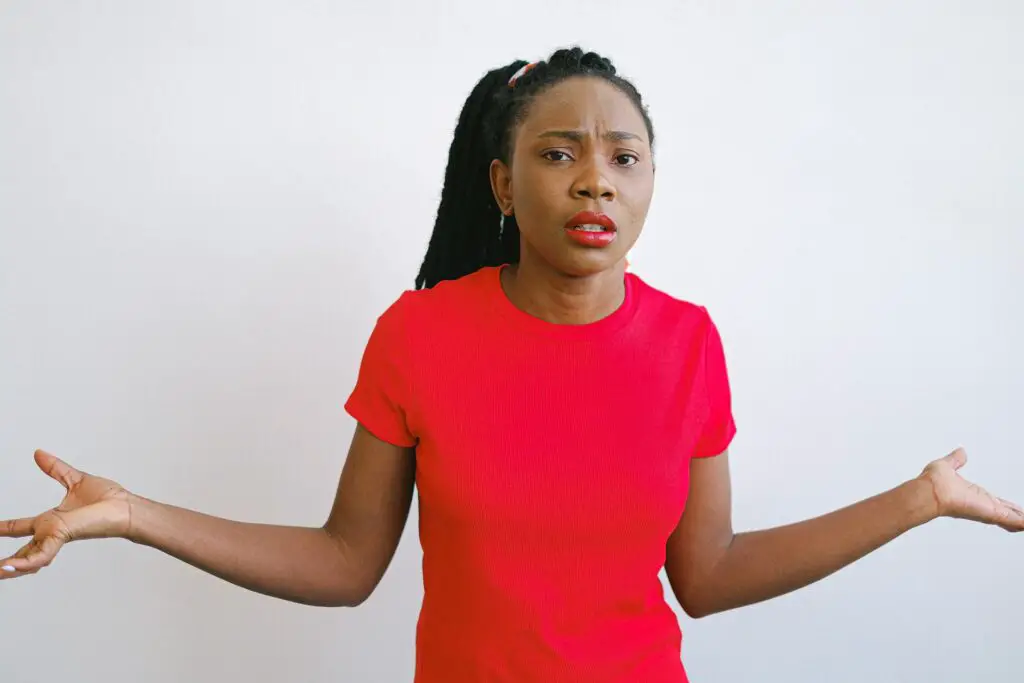
“Tea” is the juicy scoop—like, “What’s the tea on that breakup?” It’s gossip with pizzazz, probably from “spill the beans,” ‘90s-style. “Spill the tea, sis!” is prime usage. Foreigners sip Earl Grey and frown—drink or drama? It’s campy, it’s Insta-famous, and it’s reality TV catnip. We’ve made secrets a social event, and it’s delish. The thrill’s in the telling.
The confusion? Tea’s just tea elsewhere—no gossip vibes. “Spill the tea” layers it thicker if you’re clueless. It’s our dish ritual, but without the cultural signal, it’s a blank screen. The beverage-to-buzz jump’s a stretch. We’ve turned a drink into a drama delivery system, and it’s fabulous. Foreigners miss the whole spill.
12. Throw Shade

“To throw shade” is a sly jab—like dissing someone’s shoes without saying it. It’s subtle fire, ballroom-born, 2010s-mainstreamed. “She threw shade at his cooking” nails it. Foreigners think “shade” means sunscreen, not snark. It’s clever, it’s petty, and it’s drag queen chic. We’ve made low-key burns an art, and it’s a vibe. Delivery’s everything.
Why the shrugs? Shade’s a shadow, not a diss, most places. You need the cultural decoder ring to catch it. It’s witty, it’s ours, and it’s a flop to explain—try “He’s throwing shade” on a newbie. The sass is lost without the setup. We’ve flipped a visual into a verbal slay, and it’s genius. It’s all about the finesse.
13. Bae

“Bae” is your VIP—short for “before anyone else,” pure mush. “Bae’s my rock” or “Hanging with bae” oozes love. Foreigners hear “bay” or a typo. It’s 2010s romance, meme-approved, and inescapable. We’ve shrunk “baby” into a cute nugget, and it’s heart-eyes central. The devotion’s real, and it’s sweet.
The huh moment? The acronym’s fuzzy, and the sound’s odd without context. Person or place? Nope, just feels! It’s our chill love term, but it’s a phonetic riddle abroad. They miss the smoosh factor. We’ve packed affection into three letters, and it’s a hug in word form. Foreigners dodge the warm fuzzies.
14. GOAT
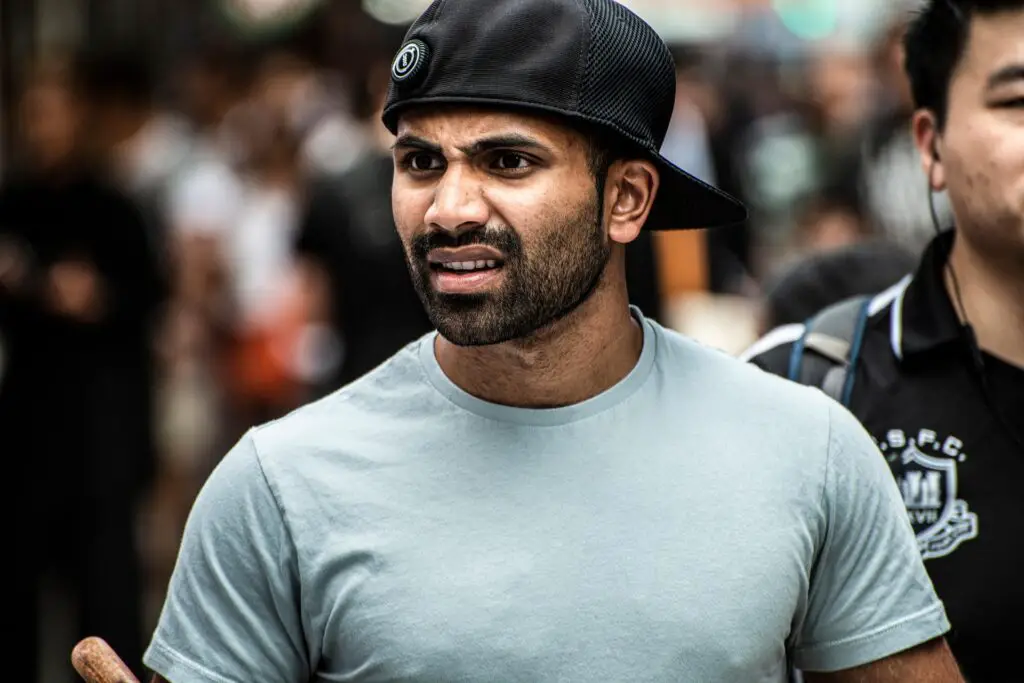
“GOAT” means “Greatest of All Time”—your top dog, like “Serena’s the GOAT.” It’s ‘90s-born, social media-boosted praise. “That move was GOAT” works too. Foreigners see farm animals, not icons. It’s hype shorthand, and we’re obsessed. The pinnacle vibe’s strong, and it’s a crown in four letters.
The oops? Goats don’t win Oscars, and acronyms don’t travel easy. “He’s the GOAT” sounds rural without the memo. It’s our king-making term, but a hard sell off the hashtag grid. We love a superlative, and this is it. It’s a barnyard-to-legend flip, and it’s pure flex. Foreigners graze past it.
15. On Fleek

“On fleek” is flawless—like, “Her eyeliner’s on fleek.” It’s 2014 Vine magic, beauty blog catnip. “My vibe’s on fleek” slays too. Foreigners squint—“fleek” isn’t real, just swagger. It’s our perfection badge, and it’s selfie-ready. The aesthetic win is everything, and we stan it.
Why the blankness? It’s a slang ghost with no past, pure Insta energy. No Vine, no clue—it’s random sounds. It’s our beauty obsession unleashed, but a cultural wall for outsiders. The word’s a unicorn, and we ride it. It’s perfection coined, and it’s ours. Foreigners miss the slay.
16. Slaps

“Slaps” is when a tune bangs—“This song slaps” is the vibe. It’s ‘90s rap roots, Gen Z polished. “That mix slaps hard” fits too. Foreigners think smack, not sound. It’s raw, it’s hype, and it’s music love. We’ve made impact a compliment, and it’s a bop.
The wha? Slap’s a hit, not a hit song, elsewhere. You need jam context to feel it—“This slaps” makes them flinch. It’s our audio obsession, and they’re offbeat. The term’s a sensation-to-sound leap, and it’s fire. We’ve vibed a word into a winner, and it’s us.


